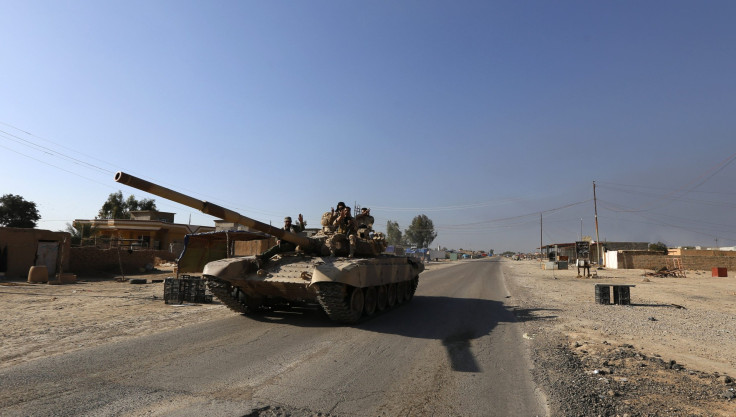Battle For Tikrit Intensifies After Iraqi Troops, Shia Militias Push Into ISIS-Held City

Iraqi government forces and allied Shia militias have continued to advance in the city of Tikrit, located nearly 90 miles northwest of Baghdad, according to media reports. The operation to retake the city from the Islamic State group entered a new phase on Wednesday, after Iraqi forces recaptured parts of the city without air support from the U.S.-led coalition.
“We are engaging in a very delicate battle because we are not facing fighters on the ground, we are facing booby-trapped terrain and sniper fire. Our movement is slow,” a senior Iraqi army official, speaking on the condition of anonymity, told Agence France-Presse (AFP).
Over the last 10 days, a force composed of nearly 20,000 troops and Shia militias has launched an offensive against ISIS, which captured Tikrit in June last year. The government forces, supported by local Sunni tribes, have retaken the town of al-Alam, located north of Tikrit, and also consolidated their position south of the city, according to media reports. The Tikrit Military Hospital was one of the latest key buildings recaptured on Wednesday. Government troops have also reportedly taken control of the oil fields in al-Ojail, another town near Tikrit, Al-Jazeera reported.
A victory for the Iraqi forces in Tikrit, one of the largest Iraqi cities under ISIS control, would provide a major boost to the coalition’s efforts in the region. The town, located between Baghdad and Mosul -- Iraq’s second-largest city -- could also serve as a base for further operations in the country’s north.
However, elsewhere in Iraq, ISIS has reportedly intensified attacks against the military. On Wednesday, the militant group launched a series of suicide attacks targeting government installations in the city of Ramadi, about 70 miles west of Baghdad, killing at least 17 people.
The involvement of Iran-backed Shia militias in the anti-ISIS offensive has also raised concerns among U.S. officials over the treatment of local Sunnis by Shia militias. Gen Martin Dempsey, chairman of the Joint Chiefs of Staff, said, during a Senate hearing on Wednesday, that there is a chance that there might be “atrocities and retribution” once Tikrit was retaken from ISIS.
“The activities of the Iranians to support the Iraqi security forces is a positive thing in military terms against ISIS … the question is what comes after, in terms of their willingness to let Sunni families move back into their neighborhoods, whether they work to restore the basic services that are going to be necessary,” Dempsey reportedly said.
© Copyright IBTimes 2024. All rights reserved.






















